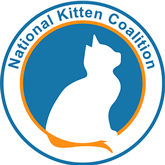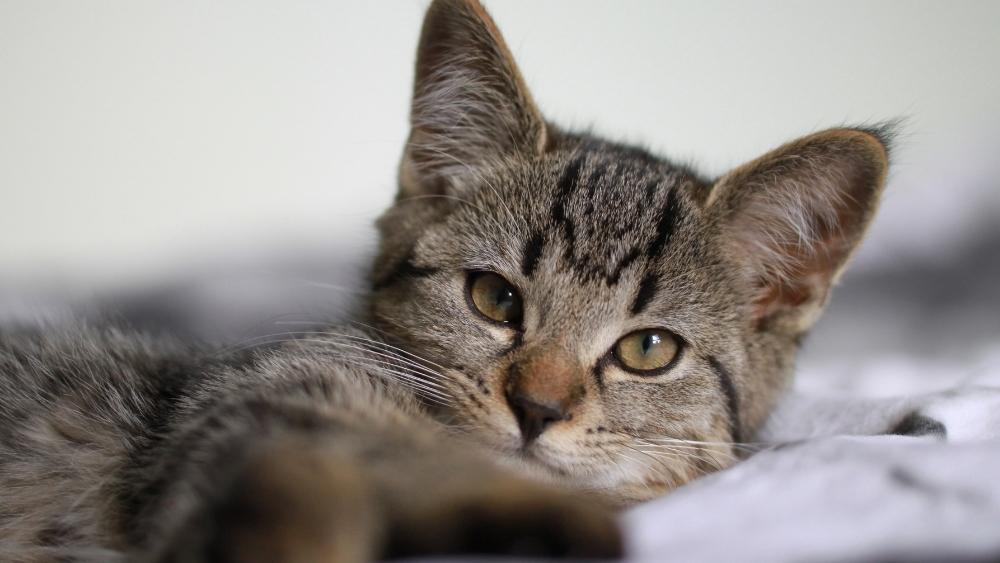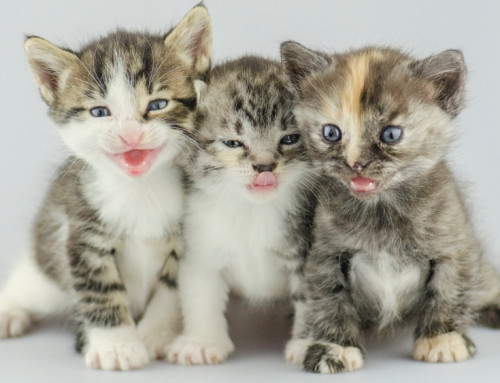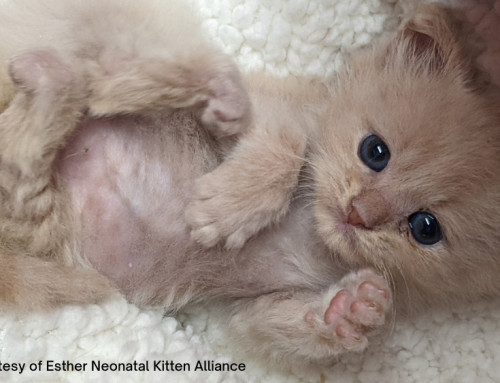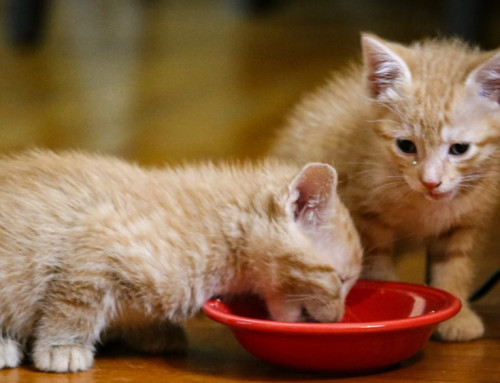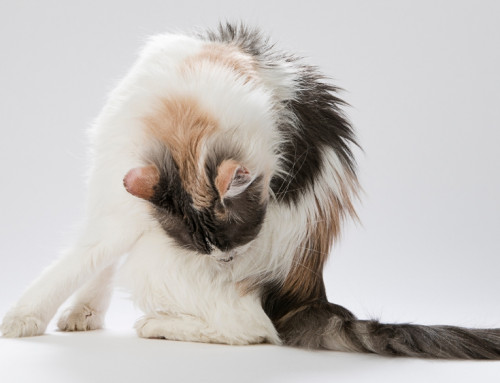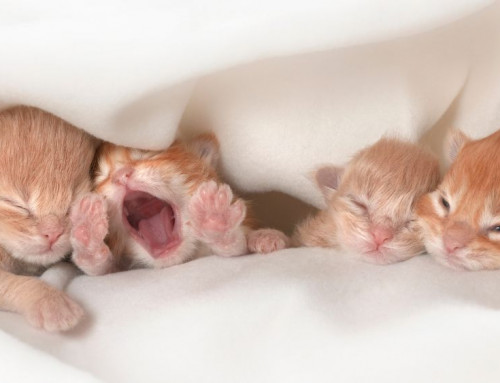Share this resource or email it to a friend!
Feline cerebellar hypoplasia, also known as CH or wobbly kitten syndrome, is a neurologic condition that affects kittens and cats. It’s most often caused when a pregnant cat is exposed to feline parvovirus, the virus that causes Feline Panleukopenia, whether from a natural infection or from a vaccination. Kittens exposed to this virus while in the womb have hypoplasia, incomplete development, of the cerebellum, a part of the central nervous system responsible for balance and movement.
Kittens are born with cerebellar hypoplasia, but symptoms aren’t evident at birth. Symptoms first become noticeable when kittens begin to stand and walk, around 4-5 weeks, but sometimes earlier. Symptoms can vary from mild to severe, with littermates even showing different signs of severity. Sometimes only one kitten is affected out of an entire litter.
Symptoms of head bobbing, tremors, falling and flipping, jerky movements and loss of balance decrease when a kitten is sleeping. Walking, running, sitting and playing are all affected. A kitten will oftentimes stand or walk with a wide stance to help with balance, and jerky movements, known as intention tremors, may become worse when a kitten tries to play or is bending over to eat or drink from a bowl.
Diagnosis is made from physical examination by a veterinarian. There are no specific diagnostic tests for CH, but an MRI may show an underdeveloped or small cerebellum.
CH is not contagious or considered to be a painful condition. There is no cure or treatment for CH, but with help and proper care, kittens with mild to moderate CH can lead long and happy lives. One important consideration is that kittens with CH should always remain indoors.
Environmental changes are important for their safety and include:
- Providing wide food and water bowls; raising them off the ground
- Supplying large litter boxes with easy access
- Using ramps to litter boxes and furniture
- Adding traction to the floor with nonslip mats
- Allowing claws to remain long for additional traction; don’t declaw!
- Restricting access to stairs for safety
- Introducing other household pets slowly
Prevention of CH includes spaying or neutering cats before five months of age to avoid pregnancies and unwanted litters. Female cats who are part of a breeding program should be vaccinated against Feline Panleukopenia before they become pregnant in order to reduce the chance of CH occurring in their kittens. Vaccinating pregnant cats carries a very small risk of CH to unborn kittens; not vaccinating carries a much higher risk for queens and kittens. Vaccinating kittens should start at 6-8 weeks of age; kittens under 4 weeks of age shouldn’t be vaccinated as there is a risk that cerebellar hypoplasia could develop.
Sharing life with cats with cerebellar hypoplasia is about focusing on their special qualities, including their wobbly walk.
